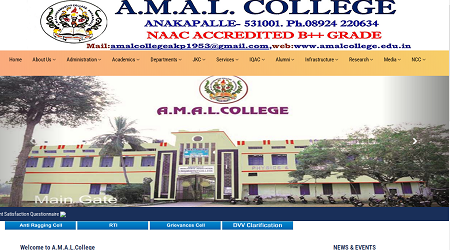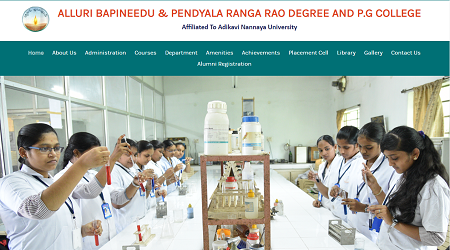can a question be a thesis statement
The title of your thesis should, ideally, be more informational in order to capture the attention of the reader. It should include extra details regarding your research as well as the major outcome you’ve attained. It is not a good idea to have a doubt regarding your thesis’s title because it is the first thing readers will see. The goal of thesis is to find answers, thus include a question in the title may not be appealing to readers.
THREE_BUTTON
To design a successful title for your thesis, make sure it conveys the substance of your thesis and piques the reader’s attention, encouraging him or her to read on.

When choosing a title for your thesis, keep the following considerations in mind:
- The thesis purpose
- The thesis scope
- The narrative tone or the research type, which is to be described by the thesis
- The involved methods
Your academic paper’s title can be formatted as a question. Questions are engaging and effective at grabbing people’s attention. They pique the reader’s interest and make them want to learn more. To be effective as a thesis title, a question must reflect the tone of the paper and foreshadow the substance. It should also be connected to your thesis statement in some way. After reading the title, readers should not be left guessing what the work is about.
Thesis Title Definition
In an academic paper, a thesis title is a statement that frames the argument you’re making. It is a brief sentence that informs the listener about the topic. From the thesis title, readers should be able to obtain a sense of the subject. That is why you must devote effort to creating a good one. Consider the title to be the package for your thesis. It must be attractive enough to attract the appropriate audience. Certain requirements must be met in the thesis title.
THREE_BUTTON
The title of a thesis is the initial point of contact for readers with a piece of academic writing, thus it must be appealing enough. The thesis title determines the pace of the writing. It has the power to convince the audience to keep reading or move on to the next section. The elements of a good thesis title are discussed in this article.

Best Title for a Thesis
A thesis title that is outstanding must satisfy numerous goals. It must correspond to the paper’s content. Your thesis topic should be obvious to your readers’ right immediately. Consequently, a thesis title is supposed to be accurately brief, and pertinent. The finest titles are short and to-the-point. Some readers may become discouraged if there are too many words. Simultaneously, it should not be too short as well. Specificity is important in thesis titles, which necessitates the use of more than four words.
Research Title
The main idea of your study is expressed in the research title. After reading the thesis title, the reader should have a good notion of how the thesis will be formatted. For example, if the title says “case study,” the reader will expect an abstract. It’s possible that you’re describing the aim of your research paper with the fewest words possible. It’s critical that the research title foreshadows the content, represents the tone, contains essential terms, and is intriguing.
Main Components of Thesis Title
The title of a thesis is as unique as the research it describes. Every thesis title, however, contains a few key elements. These aspects apply to all social sciences, economics, and political science. They are the catalysts that enable authors to develop titles that are worthwhile to read.
- Area of Interest: The study’s objectives make up a large component of a thesis title. What you want to achieve with your research sets the tone for everything else that follows. That should be reflected in the title. The paper’s broad reach is determined by the subject of interest, but you must also consider the specifics. A study on the effects of social media marketing on the purchase process, for example, provides a wide range of data to work with. However, your research may focus on specific social media platforms such as Twitter and Instagram. As a result, the headline should specifically identify the social networking sites. Use your area of interest to help you come up with a title for your thesis.
- Internal Consistency: A good title should not only be exact and appealing, but it should also be consistent within. Any decent title should correctly reflect the research as much as possible. The thesis title gives readers an idea of what the article will be about. Readers will anticipate an abstract, introduction, methodology, and so on if the thesis title includes ‘a case study approach.’ A lack of consistency might cause a disconnect with the audience, driving them away. To prevent losing or confusing the reader along the road, be careful with your terminology and writing style.
- Formatting: Never submit a thesis without first double-checking that the title is formatted correctly. Formatting isn’t required for every academic work. Disciplines and institutions have different styles. The formatting rules are important since they dictate how quotations and citations should be written. The arrangement of the piece is also dictated by the writing style. Writers may be given precise directions regarding the thesis’ tone. When writing a thesis title, keep all of these factors in mind. Don’t forget about the capitalization restrictions for titles.

THREE_BUTTON
To Sum Up
What you should remember when crafting a captivating thesis title:
- Make sure the research’s subject and scope are clear, and that the title correctly describes the study.
- Without being colloquial or cute, the thesis title should be concise, interesting, descriptive, and explanatory.
- Unless the rules indicate it, avoid using too much jargon, abbreviations, initials, acronyms, and superfluous phrases.
- All required words, including nouns, pronouns, adjectives, verbs, and adverbs, should be capitalized.
Read More
Latest News & Updates
- How to Choose the Right Coaching Center for Entrance Exams
- Career Opportunities After Completing a Degree in Chemistry
- Top Colleges for Film Studies in India: Admission Guide
- Best Career Options After Completing MBA
- Top Institutes for Data Science Courses in India
- Top Colleges for Hotel Management in India: Admission Guide
- How to Choose the Right Specialization in Engineering
- Career Opportunities After Completing a Degree in Social Work
- Top colleges for Fine Arts in India: Admission Criteria
- How to Apply for a Government Job After Graduation
Top Courses
- BACHELOR OF TECHNOLOGY IN BIO TECHNOLOGY LATERAL ENTRY
- BACHELOR OF SCIENCE OF ECG AND CARDIOVASCULAR TECHNOLOGY
- BACHELOR OF SCIENCE OF NUCLEAR MEDICINE TECHNOLOGY
- BACHELOR OF BUSINESS ADMINISTRATION IN SUPPLY CHAIN
- BACHELOR OF SCIENCE IN COMPUTER SCIENCE AND ENTREPRENEURSHIP
- BACHELOR OF SCIENCE OF EMERGENCY MEDICAL SERVICES TECHNOLOGY
- BACHELOR OF SCIENCE IN HOTEL MANAGEMENT, CATERING AND TOURISM
- BACHELOR OF SCIENCE IN APPLIED BIOTECHNOLOGY
- BACHELOR OF SCIENCE IN AQUACULTURE AND FISHERY MICROBIOLOGY
- BACHELOR OF SCIENCE IN AGRONOMY



















